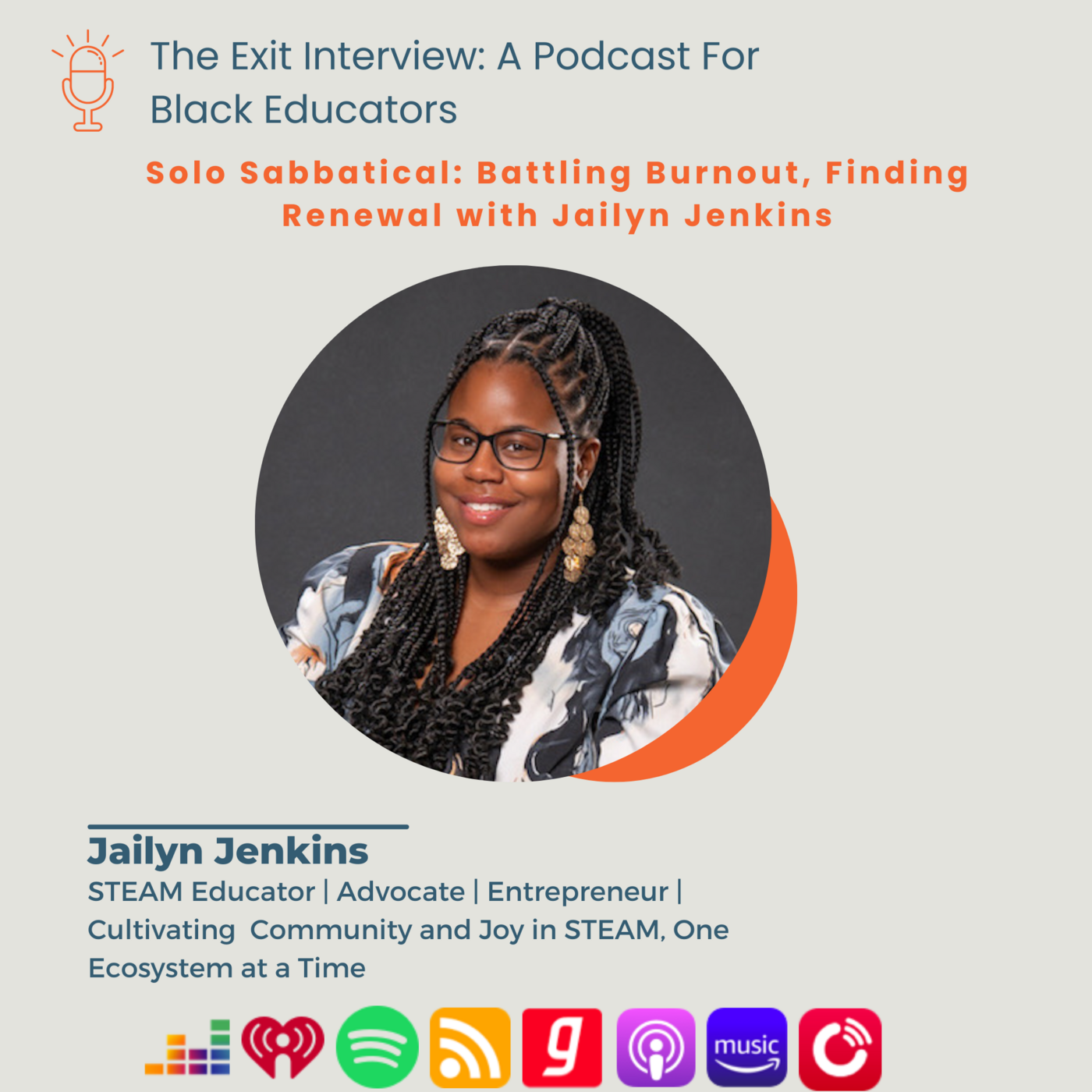The Transformative Power of Rest and Healing for Educators

In the demanding world of education, it is imperative that educators prioritize their own well-being to create a thriving and fulfilling work environment. This blog post explores the transformative power of rest and healing for educators, drawing inspiration from our podcast episode with Jailyn Jenkins, Episode 39: Solo Sabbatical: Battling Burnout, Finding Renewal.
What Rest and Healing Can Do for Educators
Rest and healing are essential for educators to:
- Reduce stress and prevent burnout
- Enhance emotional and physical well-being
- Improve focus, creativity, and decision-making
- Foster empathy and compassion for students
- Create a positive and supportive classroom environment
The Importance of Rest and Healing for Educators of Color
Educators of color face unique challenges and stressors, including microaggressions, isolation, and limited support. Prioritizing rest and healing is crucial for them to:
- Address the specific challenges they encounter
- Maintain their mental and physical health
- Create a sense of belonging and community
- Advocate for the well-being of their students
The Transformative Power of Rest and Healing
When educators prioritize rest and healing, they experience a profound transformation:
- Renewed passion and energy: They return to work with a fresh perspective and renewed enthusiasm.
- Improved relationships: They connect more deeply with students, colleagues, and family members.
- Increased resilience: They develop coping mechanisms to navigate challenges and maintain their well-being.
- Enhanced creativity: They approach teaching with new ideas and innovative practices.
- Increased impact: They create a more meaningful and impactful learning experience for students.
How to Prioritize Rest and Healing as an Educator
- Establish boundaries: Limit work hours, schedule breaks, and protect personal time.
- Practice self-care: Engage in activities that nourish your body, mind, and spirit, such as exercise, meditation, and spending time in nature.
- Seek support: Connect with colleagues, mentors, and mental health professionals for support during challenging times.
- Advocate for self-care: Promote a culture of well-being in your school and community.
The Impact of Rest and Healing on Students
Prioritizing rest and healing isn't just essential for educators; it profoundly impacts the students they teach. Here's an expansion on the positive effects of educators' well-being on students:
Improved Student Engagement: When teachers are well-rested and take care of their own well-being, they're better equipped to engage with their students both emotionally and intellectually. A rested teacher is more likely to bring enthusiasm and energy to the classroom, which can be contagious. Students are naturally drawn to educators who exude passion and vitality, fostering a sense of connection and inspiration. This engagement can lead to more meaningful interactions, deeper learning experiences, and a greater sense of belonging for students.
Increased Academic Achievement: A positive learning environment is essential for academic success, and teachers play a significant role in shaping that environment. When educators prioritize rest and self-care, they create a classroom atmosphere that is conducive to learning. Students are more likely to thrive in an environment where they feel safe, supported, and valued. Moreover, well-rested teachers are better equipped to plan and deliver effective instruction, adapt to students' individual needs, and provide timely feedback, all of which contribute to improved academic outcomes.
Reduced Student Stress: Students often take cues from their teachers, both consciously and unconsciously. When educators prioritize their own well-being, they model healthy behaviors and coping mechanisms for their students. This can help reduce stress and anxiety levels among students, who may be dealing with academic pressure, social challenges, or personal issues. By fostering a culture of self-care and resilience in the classroom, teachers empower students to prioritize their own well-being and develop the skills they need to navigate life's challenges effectively.
A More Equitable and Inclusive Classroom: Educators who prioritize their well-being are better equipped to create an inclusive and equitable learning environment where all students feel valued and supported. By taking care of their own mental, emotional, and physical health, teachers can better understand and respond to the diverse needs of their students, including those from marginalized communities. This can lead to more culturally responsive teaching practices, proactive support for students facing systemic barriers, and a commitment to fostering social justice and equity in education.
Making Rest and Healing a Priority in Education
Creating a culture of rest and healing in education requires a collective effort:
- School administrators: Provide time and resources for educators to prioritize their well-being.
- Policymakers: Implement policies that support educator self-care and reduce workload.
- Educator organizations: Advocate for and provide professional development on rest and healing practices.
A Call to Action for Supporting Educators
We call on all stakeholders to support educators in prioritizing their rest and healing:
- Recognize the importance of educator well-being for student success.
- Create and support policies and practices that foster rest and healing.
- Encourage educators to seek support when needed.
- Foster a culture of compassion and respect in schools and communities.
In the ever-demanding field of education, prioritizing rest and healing is essential for educators to maintain their well-being, enhance their teaching practice, and create a positive and impactful learning environment for their students. By embracing transformative practices and working collectively, we can create an education system where educators are valued, supported, and empowered to thrive.













